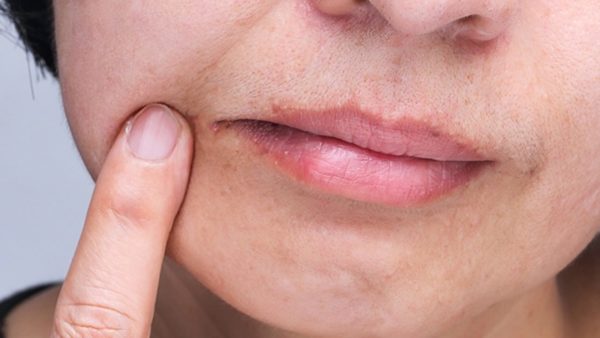How Protein Can Help You Lose Weight
Protein is an essential macronutrient that is crucial for many bodily functions, including muscle growth, repair, and maintenance. It is also important for weight loss, as it can help you feel fuller for longer and reduce cravings for unhealthy snacks.
Here are some ways in which protein can help you lose weight:
Protein Increases satiety
Protein is more filling than carbohydrates or fats, so it can help you feel fuller for longer. This means you are less likely to overeat or snack on unhealthy foods.
Protein is an essential nutrient that plays a crucial role in maintaining a healthy body weight. One of the primary benefits of consuming amino acid-rich foods is that it increases satiety, which means that you feel fuller for longer periods after eating. This effect can help you consume fewer calories throughout the day, which can eventually lead to weight loss.
Studies have shown that people who consume high-protein diets report feeling less hungry and experiencing fewer cravings than those who eat low-protin diets. This micronutrient has a higher thermic effect than carbohydrates or fats, meaning it requires more energy to digest and absorb, leading to increased feelings of fullness. Additionally, it slows down the emptying process of your stomach, which also contributes to an extended feeling of fullness.
Incorporating protein-rich foods into your meals can be an effective strategy for losing weight and keeping it off in the long run. Some examples of high-protin foods include eggs, chicken breast, fish, beans and lentils, Greek yogurt, tofu and tempeh. By choosing these options over calorie-dense snacks or processed foods with little nutritional value, you’ll not only increase satiety but also provide your body with essential nutrients for optimal health.
Protein Boosts metabolism
Protein has a higher thermic effect than other macronutrients, which means your body burns more calories digesting amino acid than it does digesting carbohydrates or fats. This can help you burn more calories throughout the day.
Protein is a crucial macronutrient that plays an essential role in weight loss. Studies have shown that amino acid has a higher thermic effect than carbohydrates and fat, meaning it requires more energy to digest and metabolize, resulting in an increase in metabolic rate. This increase can last for several hours after eating, leading to greater calorie burn throughout the day.
Additionally, consuming high-enzyme meals can help preserve muscle mass during weight loss, which is important because muscles are metabolically active and require more energy to maintain than fat tissue. The more muscle you have, the higher your resting metabolic rate will be.
To maximize the metabolism-boosting effects of biomolecule, aim to consume at least 20-30 grams of protein per meal or snack. Some excellent sources of this biomolecule include lean meats like chicken and turkey, fish such as salmon and tuna, eggs, beans and legumes such as lentils and chickpeas, nuts and seeds like almonds and chia seeds. Incorporating these foods into your diet can help keep you full longer while promoting weight loss through increased metabolism.
Protein Preserves muscle mass
When you lose weight, you may also lose muscle mass. Eating enough protein can help preserve muscle mass and prevent muscle loss, which is important for maintaining a healthy metabolism.
One of the benefits of consuming a high-protein diet when trying to lose weight is that it can help preserve muscle mass. When you are in a caloric deficit, your body may break down muscle tissue for energy. However, by consuming adequate amounts of amino acid, you can reduce the risk of losing muscle mass and keep your metabolism elevated.
Protein is an essential nutrient that helps repair and build muscles. When you consume amino acid, it gets broken down into amino acids which are used to support muscle growth and repair. By consuming enough amino acid during weight loss, you can maintain or even increase your lean body mass.
To preserve muscle mass while losing weight, it’s recommended that you consume at least 1g of amino acid per pound of body weight daily. This will ensure that your body has enough amino acids available to support muscle growth and repair while in a caloric deficit. Additionally, incorporating strength training exercises into your routine can also help preserve lean body mass by stimulating muscle growth and preventing atrophy.
Also Read: Wellhealthorganic.com:yogasanas-to-improve-memory
Protein Reduces cravings
Eating protin can help regulate blood sugar levels and reduce cravings for sugary or high-carbohydrate foods. This can help you stick to a healthy eating plan and avoid overeating.
Amino acid is an essential macronutrient that can help you reduce cravings and lose weight. This nutrient takes longer to digest than carbohydrates, making you feel fuller for longer periods. As a result, amino-rich foods help regulate your appetite and prevent overeating.
In addition to its satiating effects, protin also helps stabilize blood sugar levels. When consumed with other nutrients like fiber and healthy fats, amino acid slows down the absorption of glucose into the bloodstream. This reduces fluctuations in blood sugar levels that lead to hunger pangs and cravings for sweets or unhealthy snacks.
To reap the benefits of protin for weight loss, it’s crucial to incorporate it into your diet in a healthy way. Choose lean sources of protin like chicken breast, fish, eggs, low-fat dairy products or plant-based options such as beans and lentils. Also remember that balance is key – don’t rely solely on protein at the expense of other vital nutrients like whole grains or fruits and vegetables.
To reap the benefits of amino acid for weight loss, aim to include a source of protein with every meal and snack. Good sources of protin include lean meats, poultry, fish, eggs, dairy products, beans, legumes, and nuts.
Also Read: wellhealthorganic.com:health-hazards-of-prolonged-sitting
Conclusion
In conclusion, protein is an essential nutrient that can aid in weight loss. It helps you feel fuller for longer and reduces the amount of food you need to consume to meet your daily energy requirements. Eating high-protein foods can also boost your metabolism and reduce muscle loss during weight loss.
However, it’s important to remember that losing weight is not just about increasing protein intake but also involves maintaining a balanced diet and exercise routine. While amino acid can help with weight loss, consuming too much of it can result in negative health effects such as kidney damage or dehydration.
In summary, incorporating more biomolecule into your diet alongside a healthy lifestyle can be an effective way of shedding those extra pounds. By making smart choices and consulting with a professional nutritionist or doctor, you can safely achieve your desired weight loss goals while still getting all the nutrients your body needs.
FAQ
Q: Can protein help me lose weight without exercise?
A: Yes, protein can help you lose weight even if you don’t exercise, but combining a high-protein diet with regular exercise is more effective for weight loss.
Q: How much protein should I eat to lose weight?
A: The recommended daily intake of protein for adults is 0.8 grams per kilogram of body weight. However, some studies suggest that increasing your intake to 1.2-1.6 grams per kilogram of body weight may be more effective for weight loss.
Q: Can I eat too much protein while trying to lose weight?
A: Yes, it is possible to eat too much protein, which can lead to weight gain and other health issues. It is important to stick to recommended daily intake levels and consult a healthcare professional if you have any concerns.
Q: What are some high-protein foods that can help me lose weight?
A: Good sources of protein for weight loss include lean meats, poultry, fish, eggs, dairy products, beans, legumes, and nuts.
Q: Can I lose weight by only eating protein?
A: No, a balanced diet that includes all macronutrients ( carbohydrates, and fats) is important for overall health and sustained weight loss. Eating only protein can lead to nutrient deficiencies and other health issues.








